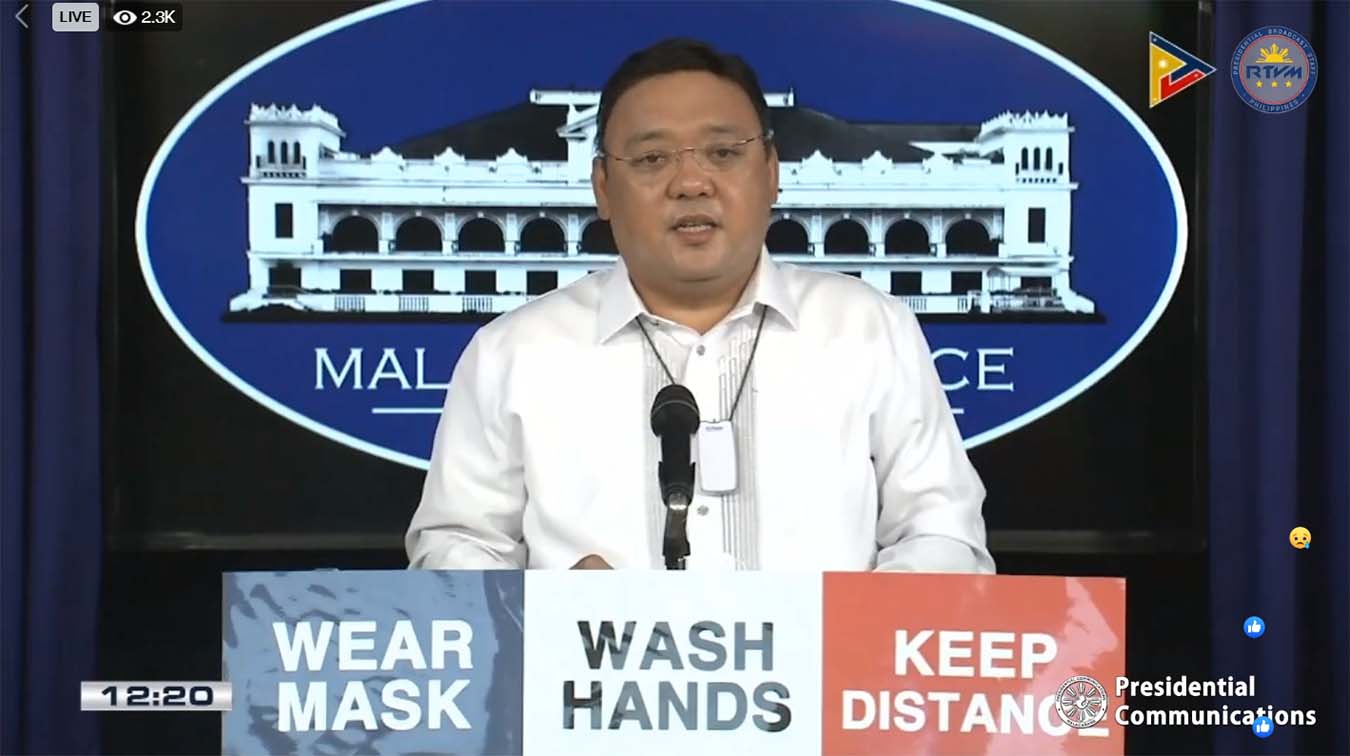Headline
Palace defends AFP personnel for getting Sinopharm vaccine

In a Palace press briefing, Presidential Spokesperson Harry Roque explained that getting inoculated with a vaccine without approval from the Food and Drug Administration (FDA) of the Philippines is not a violation of Republic Act 9711 or the FDA Act of 2009. (PCOO file photo)
MANILA – Malacañang on Monday defended the Armed Forces of the Philippines (AFP) after some military personnel received Chinese pharmaceutical company Sinopharm’s coronavirus disease 2019 (Covid-19) vaccine despite having not been approved yet by local regulators.
In a Palace press briefing, Presidential Spokesperson Harry Roque explained that getting inoculated with a vaccine without approval from the Food and Drug Administration (FDA) of the Philippines is not a violation of Republic Act 9711 or the FDA Act of 2009.
“Hindi po pinagbabawal ng batas natin ang magpaturok ng hindi rehistrado. Ang bawal po yung distribution at yung pagbebenta. So ito naman po ay tinurok sa mga sundalo na pumayag (The law does not prohibit individuals from getting inoculated with vaccines that are not registered. What’s prohibited is the distribution and sale.
So, this was only given to soldiers who agreed),” he said.
Citing FDA Director General Eric Domingo, isolated inoculation of vaccines is allowed if it is not commercially distributed or sold.
“Sabi nga po ng FDA nga kapag yung pagturok na hindi naman commercially distributed, commercially sold, hindi naman po ‘yun pinaparusahan o pinagbabawal (The FDA said that if the vaccine was not commercially distributed, commercially sold, it won’t be penalized or prohibited),” he added.
Roque said receiving the Sinopharm vaccine is a “personal decision” of some military personnel, adding that it is currently among the “most widely-used” vaccine so far.
He also noted that nearly 1 million Chinese people including workers, government officials, and students, have received the Sinopharm vaccine. Only a few people experienced symptoms but there were no adverse reactions.
“Siguro ‘yun yung dahilan kung bakit yung mga sundalong pumayag ay assured naman sila na 1 million nabakunahan, wala namang nangyari sa kanila (Perhaps that’s the reason why the soldiers agreed to get inoculated because they were assured that since 1 million were already vaccinated, nothing will happen to them),” he said.
Not purchased by gov’t
Roque, meanwhile, appealed to the public not to deny members of the military from receiving vaccines early, noting that as front-liners they deserved to receive protection against Covid-19.
“Huwag niyo naman pong ipagkait sa ating mga sundalo kung nagkaroon sila ng proteksyon. Tanggapin na lang po natin na importante na yung ating kasundaluhan, yung mga nagbabantay sa ating seguridad ay ligtas na sa Covid nang magampanan nila ang kanilang trabaho (Do not deny the protection needed by our soldiers. Let’s just accept that our military is important, those who guard our security are safe from Covid so they can do their jobs),” he added.
He also said the Sinopharm vaccines were not purchased by government, so these “must have been donated” but could not say who gave the vaccines.
In a public address on Saturday night, Duterte said some Filipinos, including military personnel, have been inoculated with the Sinopharm vaccine.
“Halos lahat ng sundalo natusukan na (Almost all soldiers were inoculated with a vaccine). I have to be frank and I have to tell the truth. I will not foist a lie. Marami nang nagpatusok and lahat (Many have been inoculated),” he said.
Duterte said he wanted members of the military to be among the first to receive the vaccine because he did not want “sickly” military or police force.
“The reason why is that they have to be in good health all the time because they are responsible for the law and order of this country,” he added.
Interior Secretary Eduardo Año also confirmed that some members of the Cabinet, as well as the Presidential Security Group (PSG) have been inoculated against Covid-19.
Senators earlier cast doubt over the reported 50-percent effectivity rate of the Sinopharm vaccine in trials in Brazil. They also noted the Sinopharm vaccine is more expensive than other brands.
Under Republic Act 9711, the manufacture, importation, exportation, sale, offering for sale, distribution, transfer, non-consumer use, promotion, advertising or sponsorship of health products without proper authorization is prohibited.





















